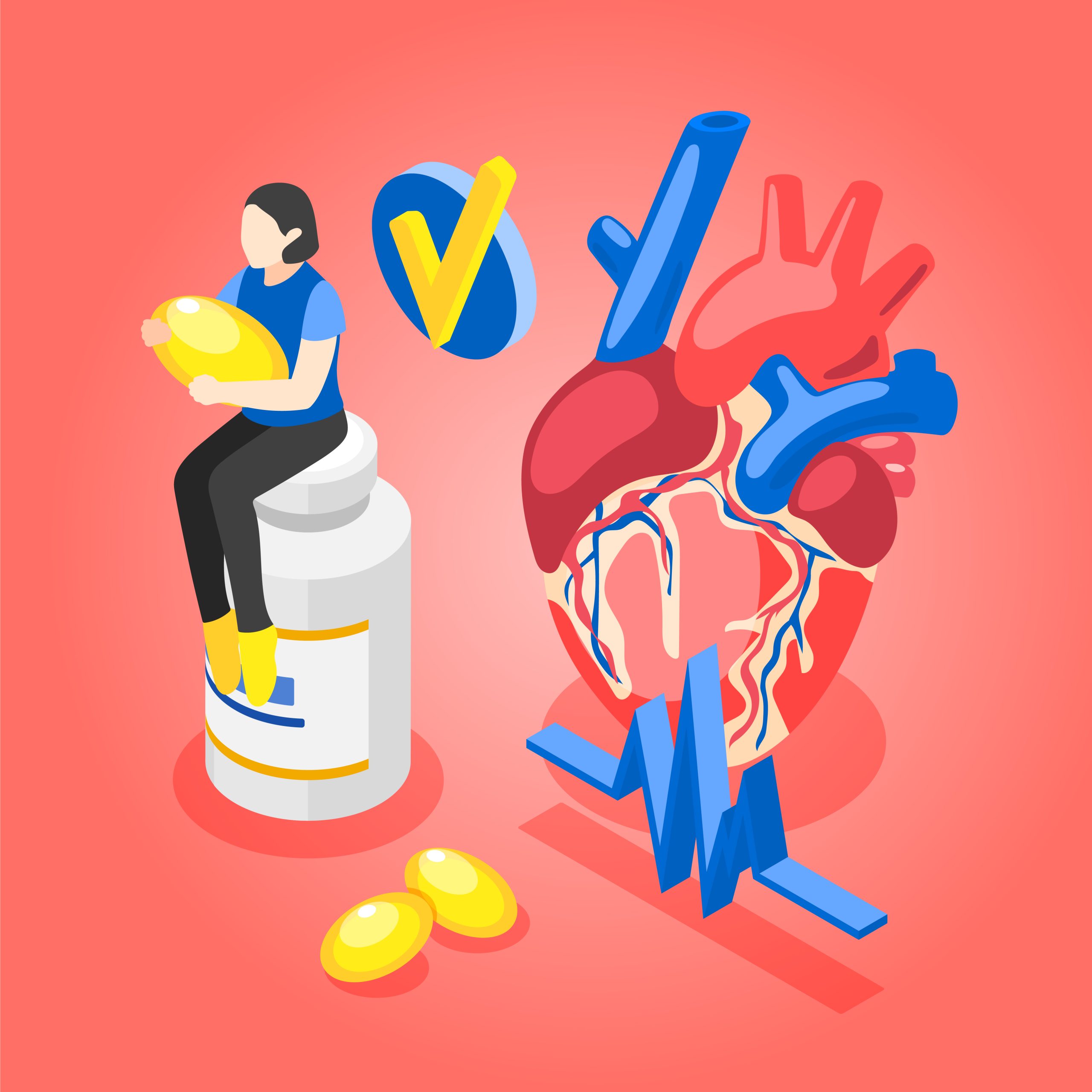Understanding the different types of high cholesterol

Understanding cholesterol imbalance: Types and Implications
09 Jul 2024
Cholesterol is important for our bodies.It helps structure our cells, produces hormones, and helps with digestion. But when there is an imbalance in cholesterol, it causes a lot of health problems. Let’s discuss and learn what cholesterol is, what good and bad cholesterol is and more details that will lead you to a healthy lifestyle.
What is Cholesterol?
Cholesterol is a waxy substance that is found inside every cell of the body. It gets carried in the bloodstream by lipid fats and proteins (lipoproteins). There are two types of lipoproteins: low-density lipoproteins (LDL), and high-density lipoproteins (HDL).
Normally, LDL is considered bad cholesterol as its high levels can lead to plaque. HDL is referred to as good cholesterol as it aids in removing LDL from the bloodstream.
What health issues can bad cholesterol lead to?
An excessive amount of LDL in your bloodstream leads to high cholesterol. It has no symptoms, which is why it’s also called a silent problem. If left untreated for a few years, LDL can lead to the following health issues:
- Atherosclerosis: It is caused by fatty deposits inside your arteries, creating difficulties in the blood flow and ultimately leading to heart disease or stroke.
- Heart Attack:When fatty deposits or plaque in your blood face an outburst, it can develop into a blood clot that can lead to a heart attack.
- Stroke:When a clot blocks the blood flow to your brain, it can cause a stroke.
- Peripheral Artery Disease: When plaque develops in the arteries, the blood supply in the limbs may cause pain and issues in moving around.
What could be the potential risks of low cholesterol or LDL?
Although high cholesterol is what scares people,low cholesterol has some health risks too. Let’s learn about them:
- Hormonal Imbalance:Cholesterol produces essential hormones such as testosterone and estrogen. LDL can disturb the ideal levels of your hormones and cause issues like fertility problems or mood changes.
- Increased Risk of Certain Cancers: As per studies, LDL can also lead to certain cancers.
- Mental Health Issues: LDL is also linked to the risks of anxiety or depression.
What causes a cholesterol imbalance?
A lot of the causes of cholesterol imbalances narrow down to lifestyle and genetics. Let’s get to know cholesterol imbalance causes in detail:
- Diet:Consuming a diet inclusive of trans fats, saturated fats, and cholesterol could bring your LDL levels up. On the other hand, not getting enough healthy fats can bring down your HDL levels.
- Physical Inactivity:Not being physically active can lead to weight gain, high LDL, and low HDL.
- Smoking:Smoking is known to damage the walls of blood, and lower HDL. It also makes them more vulnerable to fatty deposits.
- Genetics – there is also a genetic disorder that causes high cholesterol (Familial hypercholesterolemia). It plays a role in how your body deals with cholesterol.
- Health Conditions:Some conditions, like hypothyroidism, diabetes, liver, and kidney diseases can also impact your cholesterol levels.
- Medications: Some medications, like steroids, increase cholesterol levels, while others lower them.
What are the cholesterol imbalance symptoms?
Noticing a cholesterol imbalance is often not possible until there are some significant problems. Even so, there are some cholesterol imbalance symptoms which you can look out for:
- Xanthomas:These are the fatty deposits under your skin, which may show up as yellow patches around your eyes.
- Chest Pain:It occurs when your heart does not get enough oxygen due to blockages in arteries. It is also called Angina.
- Leg Pain: There may be pain in your legs when walking, a sign of peripheral artery disease.
- Stroke Symptoms:It may show up in the form of a numbing or weakened feeling on one side of your body, problems in speaking and headache.
Regular cholesterol tests help in managing the condition, especially if you have it in your family history.

What are the available cholesterol imbalance treatments?
Managing cholesterol involves a combination of lifestyle changes and, if necessary, medications. Here’s how to address high and low cholesterol:
- Dietary Changes:
(High cholesterol) You can try making changes in your diet by consuming more fruits, veggies, whole grains, and proteins. Omega-3 fatty acid-dense food can also help increase HDL. Avoid fats that are trans or saturated.
(Low Cholesterol) Try consuming more healthy fats from nuts or olive oil to maintain your health.
- Regular Exercise: Aim for at least 150 minutes of physical activity at least 5 days a week. It will maintain both your HDL and LDL levels.
- Quit Smoking:Since smoking is bad for your heart, quitting it can improve your HDL and benefit your heart health.
- Medications:Take medicines as prescribed by your doctor.
- Regular Checkups: Get checked regularly so you can avoid any potential risks before it’s too late.
Conclusion
Our bodies need cholesterol in its best form, that’s why maintaining its balance is important to prevent any health issues. Keep a good understanding of good and bad cholesterol, their symptoms, causes and treatments as well. Not to forget, a healthy lifestyle is just as important. Work closely with your doctor, practice patience, and achieve a healthy life. In your health journey, TatvaCare is by your side. Our app, GoodFlip, is specially designed to work as a personal healthcare assistant for patients wanting to live a healthy life while managing chronic diseases like cholesterol. It provides useful features like health test bookings, medication reminders, vitals monitoring, health assessments, as well as personalised diet and exercise coaching. You too can download and register on the app to gain access to expert advice on cholesterol management. You can also watch this space for reading more about high cholesterol. For any queries or feedback about our products and services, call us at +9199740 42363 or write to us at support@tatvacare.in.

Medically reviewed by
Dr. Devina Aswal 
MBBS, DDM, FCR, CIC
Recent Blog
- Virtual Twin Patients: What Indian Doctors Can Learn from the Future of Surgical Planning
- Can AI Deskill Doctors? The Lancet Warns of Risks – Here’s How You Stay in Control
- What India’s AI Push Means for Small Clinics
- Top 5 Myths Doctors Believe About Going Digital and Why They’re Wrong
- Clinic Burnout Is Real, Here’s How EMR Can Help Without Getting in the Way…
Archives
Categories
- Asthma (20)
- Diabetes (15)
- Fatty Liver (20)
- High Blood Pressure (2)
- High cholesterol (2)
- Hypertension (2)
- Insulin Resistance (1)
- Obesity (8)
- PCOS (6)
- TatvaPractice (18)
Let’s Connect
Quick contact

